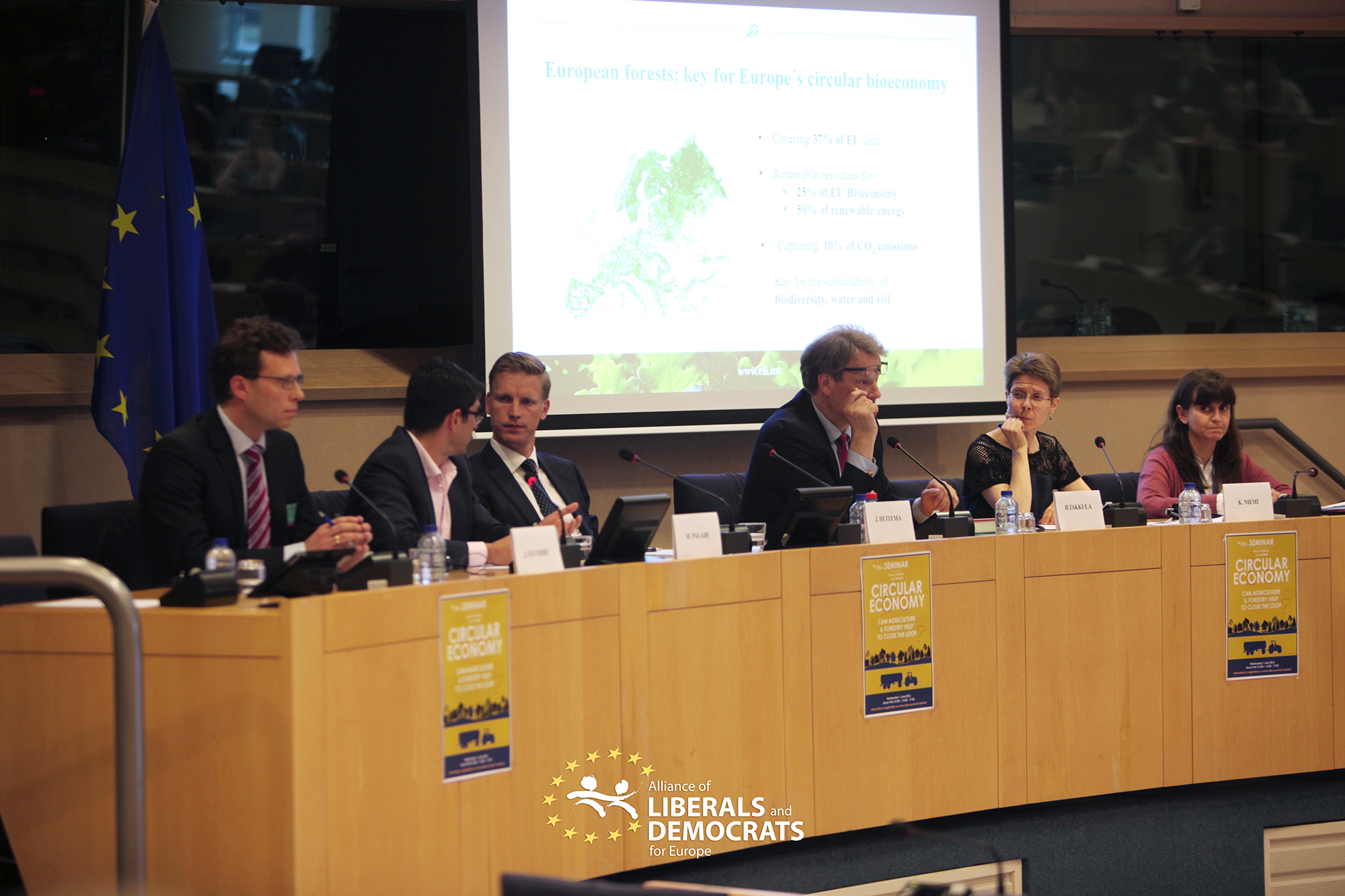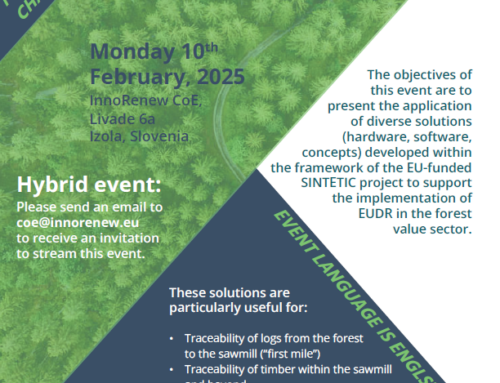
Circular Economy – Can agriculture & forestry help close the loop?
On the 1st of June, the EOS Secretariat participated in the seminar “Circular Economy: Can Agriculture and Forestry help to close the loop?” organized by the Alliance of Liberals and Democrats for Europe. The seminar examined the huge potential and benefits of practices and innovations from the agricultural and forestry sectors which could contribute to a Circular Economy. In addition to a couple of European Member of Parliaments, stakeholders from universities, civil society, business representatives and European institutions were present.
Mrs María Gafo Gómez-Zamalloa from "DG Agriculture and Rural Development" recalled that the European Strategy for forests and the forest sector aims at supporting sustainable forest management and strengthening the coordination with Member States as well as the coherence of EU policies affecting forests. Moreover, the EU Strategy for Forests aims at ensuring that forests play a positive socioeconomic & environmental role in the EU: rural development, added value products while delivering ecosystem services. Additionally she recalled the statement made by Mr Phil Hogan, Commissioner for Agriculture and Rural Development who said "Forestry represents a key sector in the transition towards a low carbon and climate friendly economy – this sector represents a win-win situation for our climate and our economy".
During the seminary it was highlighted that building more with wood would give a relevant contribution to a circular economy. Wood is lighter than concrete, does not produce waste (a construction in wood can be reused and recycled), guarantees better noise insulation, has a better thermal efficiency and a lower carbon footprint. Wood with respect to concrete uses 28-40% less primary energy and 45-70% less carbon emissions.
Another important contribution of forests to the circular bio-economy is the role they have in improving water retention and water infiltration in soils. Water is indeed key for a circular bio-based economy, and forests are key for the water cycle.
Overall, forests do not offer just wood, which is their primary service, but also a wide range of environment friendly products and solutions, which are sustainable and fully in line with the concept of circular economy; out of forests products, medicines and wellness-related products can be produced, stylish interior designs, biopolymers and bio-plastics, bio-chemicals and packaging solutions.
At the end of the seminary, the European Commission highlighted that we must move to a circular economy model to maintain sustainable forests and that forestry represents a key sector in the transition towards a low carbon and climate friendly economy – this sector represents a win-win situation for our climate and our economy; moreover, the EU emphasized that economic viability is of crucial importance for maintaining the multiple benefits that forests provide to society, and especially for providing a living for rural populations: it is vital .
In short, there is a clear commitment from the EU to advance towards a low-carbon economy and to reach that aim forests play a fundamental role. One of the challenges that lie ahead will be to streamline the coherence of EU policies affecting forests as well as strengthen the coordination with Member States keeping into consideration their own specificities.
Related Posts
Contact
EUROPEAN ORGANISATION
OF THE SAWMILL INDUSTRY AISBL
Rue Montoyer 24/box 20
BE-1000 Brussels
Tel.: +32 2 287 08 68
Email: info@eos-oes.eu




